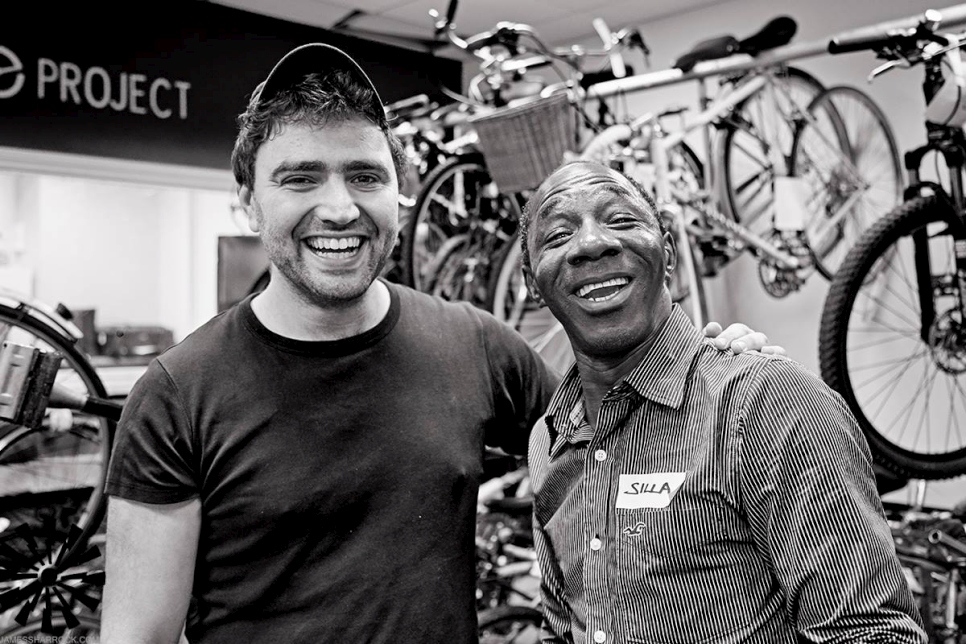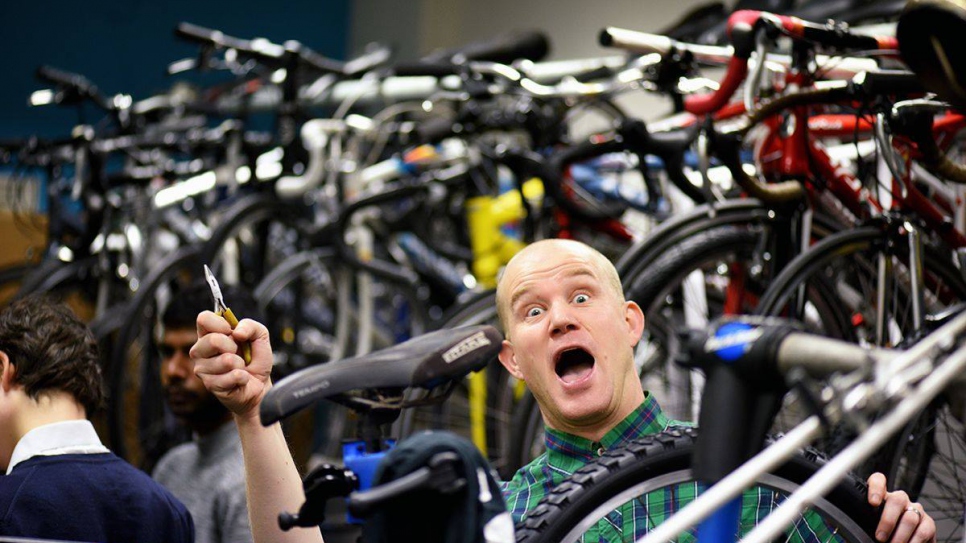Life cycles: The project getting refugees cycling in London
Travel, therapy, a healthy lifestyle and a support network: The Bike Project helps refugees embark on their new lives in London
It’s pricey to get around London. There’s also a lot of bikes going rusty in garages or sadly stored on balconies. For refugees and asylum-seekers who struggle to meet the cost of a London travel card, a bike is a passport that opens up the city.
The Bike Project – a team of bike lovers and volunteers based in South London – refurbish second-hand bikes and give them to destitute refugees and asylum-seekers, helping them attend crucial interviews and appointments. They also run workshops to train refugees and volunteers in essential bike maintenance.
With a bike, Adam could get to doctors’ appointments, to school and to essential appointments for his asylum application.
Jem Stein, 29, the founder of The Bike Project, was inspired while a student at the LSE. He was shocked to learn that Adam, a refugee from Darfur whom he was mentoring, lived on £36 a week while he was seeking asylum. With a bike provided by The Bike Project, Adam could get to doctors’ appointments, to school and to essential appointments for his asylum application.
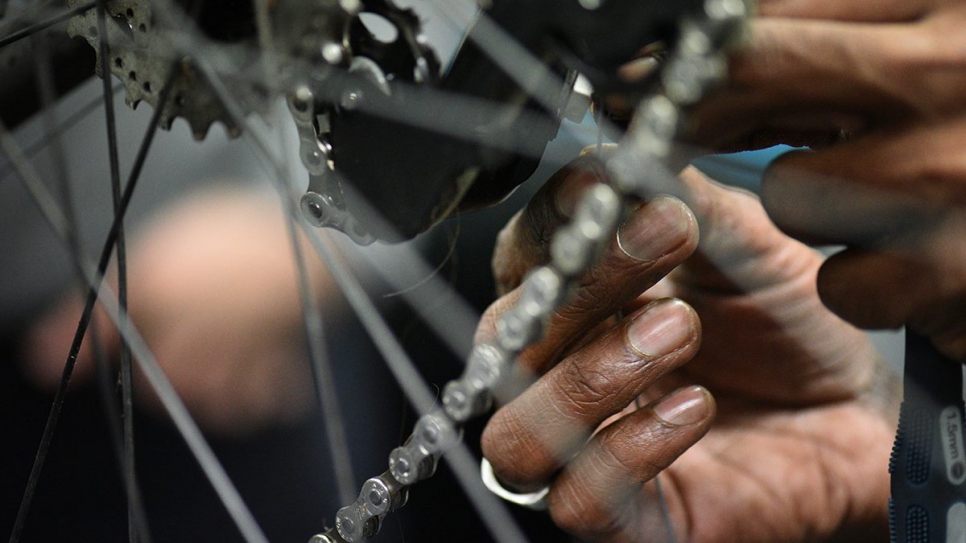
The Bike Project provide free bikes to refugees and asylum-seekers in London, so that they can get around to essential appointments. © Susan Black
“Asylum-seekers come to this country with nothing: many have faced persecution and torture in their country of origin. When they get here, they are prevented from finding employment, and forced to live on around £36 a week in asylum support,” Jem says.
“London is a city that is rich in opportunities. A bike can help these people reach the many resources that London has to offer: charities that can feed them, lawyers to aid their application process, Home Office appointments, healthcare, education and much more,” Jem explains.
The Bike Project started in Jem’s back garden in 2013. Since then they have given away 2,000 bikes – that’s 2,000 asylum-seekers and refugees who can now get around the city. The bikes are donated by people across the city and lovingly restored by Bike Project volunteers.
Riding a bike means leading a healthy lifestyle, and feeling more independent and empowered
“Riding a bike means leading a healthy lifestyle, and feeling more independent and empowered,” Jem explains.
Eritrean refugee Alpha started as a volunteer with the Bike Project, and thanks to his knack for fixing bikes they are now able to employ him full time as a bike mechanic.
“Our volunteers are local people and refugees – it’s a really dynamic space,” says Jem.
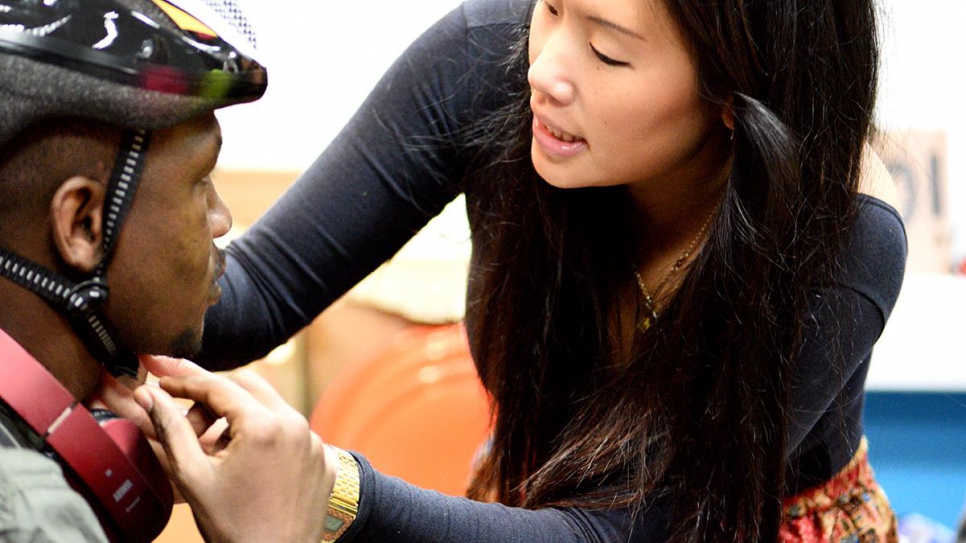
Volunteer at The Bike Project gives out free bikes to refugees and asylum-seekers, as well as providing free helmets, lights and locks. © Susan Black
On Wednesday mornings a women-only session helps beginners get riding. Not only does it help them to get around, but it’s an activity that promotes a healthy lifestyle, where the women learn something new and get out and about with a lovely community of women cyclists.
Asylum-seeker Nazmeen* had never cycled in London, but needed a way to get around and so joined the Bike Project.
“Being in the asylum process is very difficult. You don’t feel energetic or optimistic about anything. This course gave me a reason to leave the house. It was like therapy for me,” Nazmeen says, “It made me more confident and I learnt a lot. It was also good exercise – after every session I felt energetic, happier. It lifted my mood. Now, I am a lot more independent,” Nazmeen explains.
This course gave me a reason to leave the house. It was like therapy for me. Now, I am a lot more independent
The tutors help the women gain the skills and confidence to get on the road. After completing the course they receive a second-hand cycle as well as a helmet and lights. They also learn to fix punctures and check their bikes.
“Before, I thought this was a man’s job, and I told myself I wouldn’t be able to do it,” says Nazmeen. “But it was amazing. I did it! And now I can do it for myself!”
After the course, tutor Claire found Nazmeen a cycling buddy in the local area, who helped her get confident enough to begin cycling on her own.
“Now I am slow and careful but I can get around on my own. Everyone is lovely. I made some really good friends and now we help each other with other things outside of the course,” Nazmeen says.
After finishing the course Nazmeen volunteered to help other women learn to cycle.
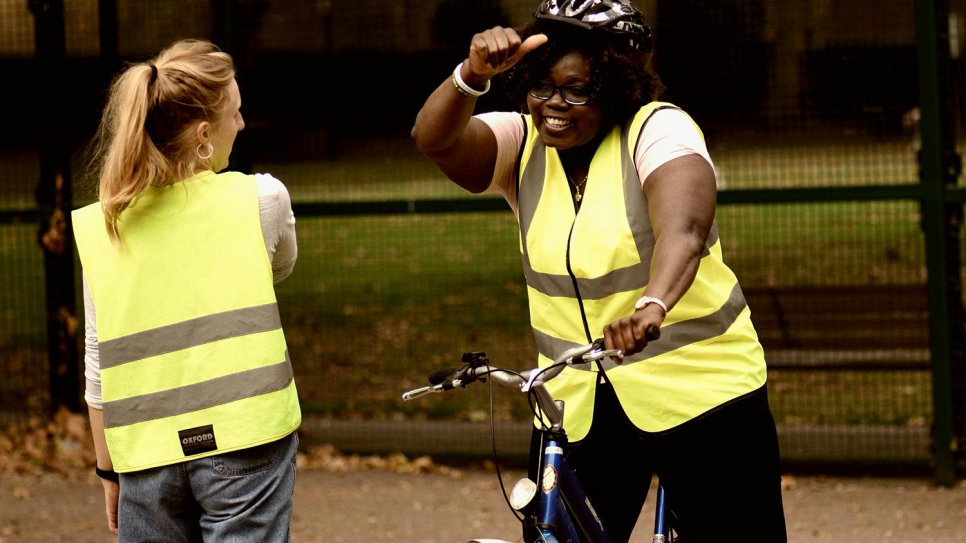
Cycling teacher Sarah gets a big "thank you" thumbs up from one of the women learning to ride. © Susan Black
“Progressing from learning to teaching made me feel really good – I had lots of patience and learnt how to communicate with people,” she explains. “Before I felt useless. But this was brilliant. I felt useful again.”
“I want to say a big thank you to the Bike Project. They do something different for asylum-seekers and refugees. Learning how to cycle and how to fix bikes made me confident and happy,” she explains. “I hope they can continue to help many others get on their bikes and be safe and happy!”
Find out more about The Bike Project.
This story is part of a series exploring the incredible ways people across the UK are showing refugees and asylum-seekers a #GreatBritishWelcome. Read other amazing stories of innovation and welcome in the UK.
* Nazmeen's name has been changed for protection reasons

